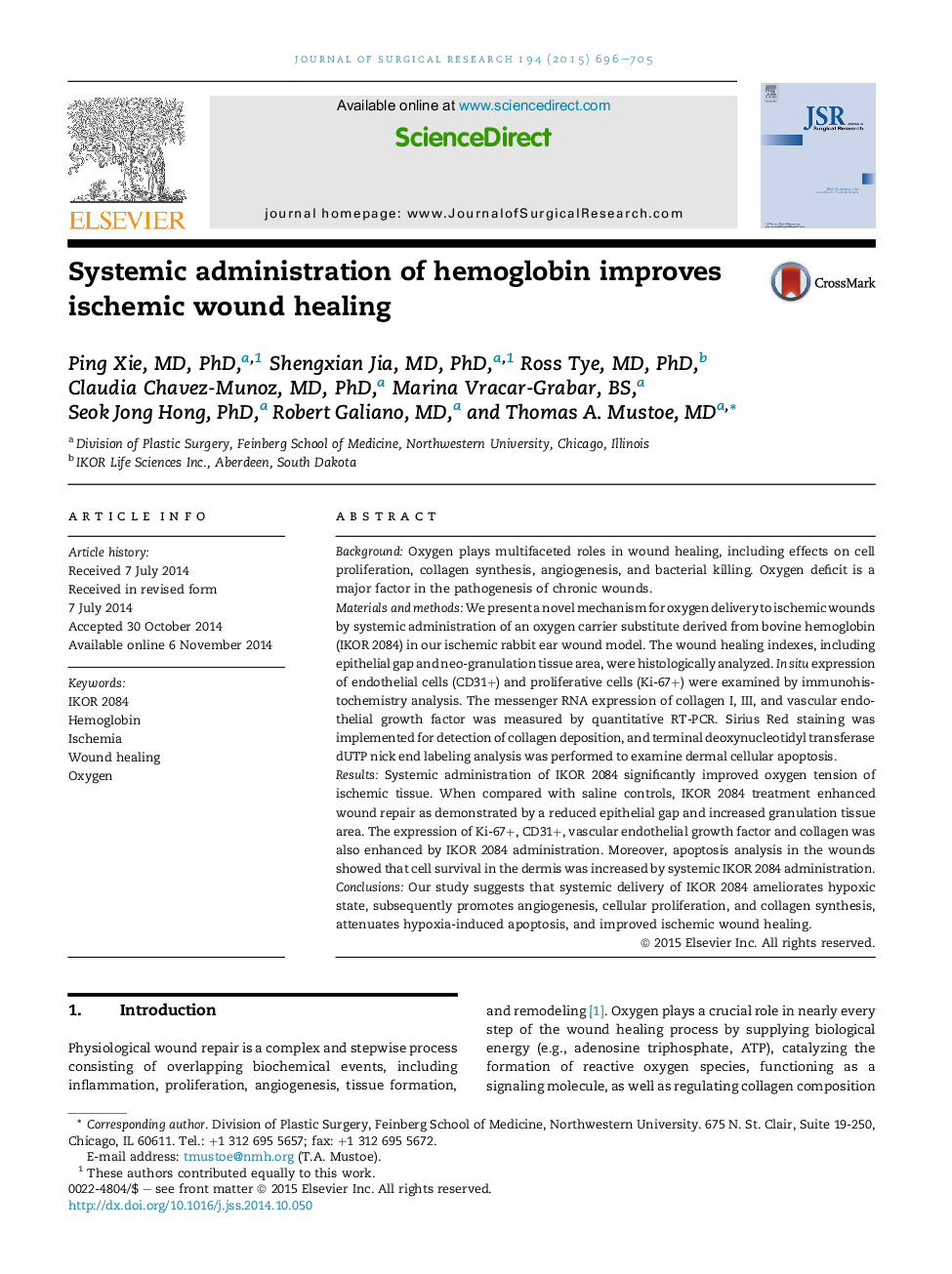| Article ID | Journal | Published Year | Pages | File Type |
|---|---|---|---|---|
| 4299474 | Journal of Surgical Research | 2015 | 10 Pages |
BackgroundOxygen plays multifaceted roles in wound healing, including effects on cell proliferation, collagen synthesis, angiogenesis, and bacterial killing. Oxygen deficit is a major factor in the pathogenesis of chronic wounds.Materials and methodsWe present a novel mechanism for oxygen delivery to ischemic wounds by systemic administration of an oxygen carrier substitute derived from bovine hemoglobin (IKOR 2084) in our ischemic rabbit ear wound model. The wound healing indexes, including epithelial gap and neo-granulation tissue area, were histologically analyzed. In situ expression of endothelial cells (CD31+) and proliferative cells (Ki-67+) were examined by immunohistochemistry analysis. The messenger RNA expression of collagen I, III, and vascular endothelial growth factor was measured by quantitative RT-PCR. Sirius Red staining was implemented for detection of collagen deposition, and terminal deoxynucleotidyl transferase dUTP nick end labeling analysis was performed to examine dermal cellular apoptosis.ResultsSystemic administration of IKOR 2084 significantly improved oxygen tension of ischemic tissue. When compared with saline controls, IKOR 2084 treatment enhanced wound repair as demonstrated by a reduced epithelial gap and increased granulation tissue area. The expression of Ki-67+, CD31+, vascular endothelial growth factor and collagen was also enhanced by IKOR 2084 administration. Moreover, apoptosis analysis in the wounds showed that cell survival in the dermis was increased by systemic IKOR 2084 administration.ConclusionsOur study suggests that systemic delivery of IKOR 2084 ameliorates hypoxic state, subsequently promotes angiogenesis, cellular proliferation, and collagen synthesis, attenuates hypoxia-induced apoptosis, and improved ischemic wound healing.
